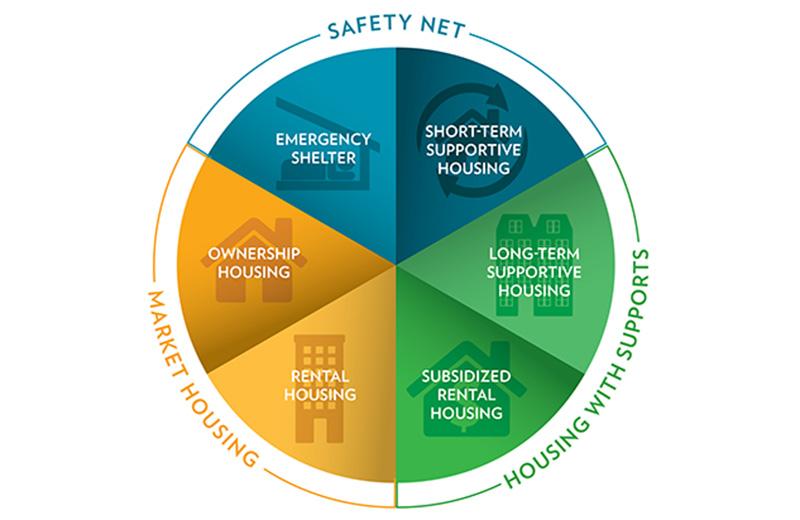Governments across Northern BC are in the process of completing housing needs assessments. This legislative requirement gives communities an in-depth understanding of housing-related trends, gaps, and needs, helping them to develop housing strategies and action plans to better meet local needs.
The connection between housing and health
Housing and health are tightly connected. The affordability, quality, and location of someone’s home impacts health: it impacts how much money they have available to meet other basic needs, their likeliness to be injured or develop diseases, and also their mental health and sense of social connectedness. When there is commitment and collaboration across governments, non-profits and community members, housing needs assessments are exciting opportunities to understand and address housing in ways that improve the health of communities. This commitment increases the variety of options available to municipal leaders to support the development of healthy housing stock in their community, taking into account diverse housing needs.
Using public policy to build healthy communities
Considering how health can be affected by housing policies is an example of healthy public policy – the practice of considering how health and equity are impacted, in both intended and unintended ways, by new and existing policies. Developing healthy public policy is one way that local governments can proactively build communities that make it easier for all citizens to make healthy choices and lead healthy lives.
Examples of healthy housing policy in the North
Many local governments in the North are moving in this direction. In Wells and Fort St. John, official Community plans define and develop policies related to affordable and special-needs housing. In Prince George, affordable housing projects are eligible for tax exemptions and waived or reduced development cost charges (DCCs). In Kitimat, there is a residential rental housing maintenance bylaw, which requires owners to remedy unhealthy living accommodations.
Join the first NH Healthy Housing Policy webinar on December 8
Northern Health’s Healthy Communities team is passionate about advocating for and promoting healthy public policy – which is why we’re hosting a three-part webinar series on the topic! The first webinar focuses on what local governments can do to improve health through housing. Future webinars in this series will cover topics such as active communities and food security.
Each webinar will share best practices and create opportunities for small, facilitated discussions between participants to share experiences and challenges across the North. To learn more and to register for the webinar, visit the Northern Health - Healthy Communities webpage.














Comments